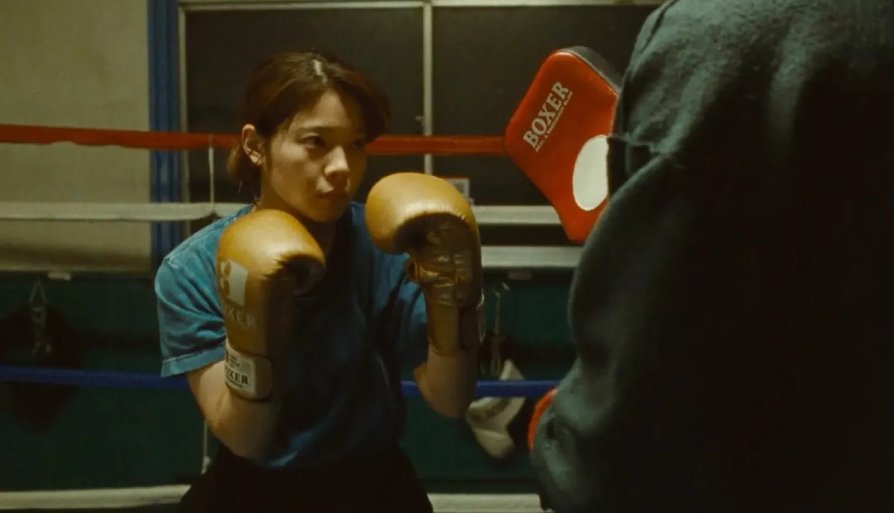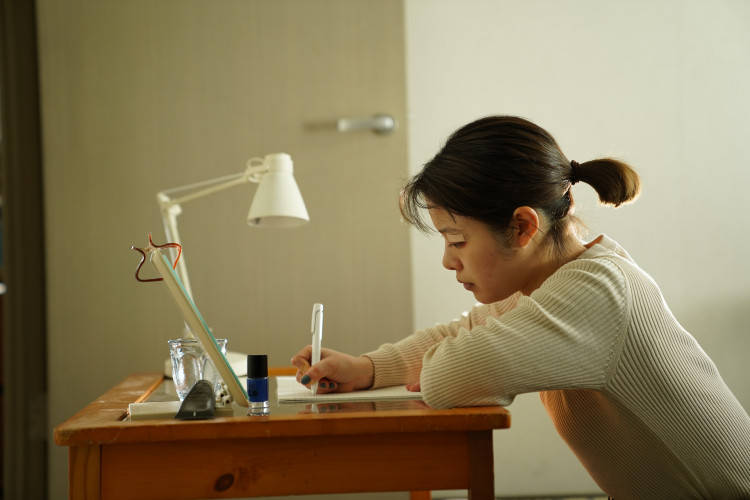Small, Slow but Steady
12There are no other sports that are as brutal or as punishing as boxing, with the possible exception of Mixed Martial Arts.
Up until recently it has been a sport where men have faced off in the ring, trying their utmost to get the better of their opponent.
But in recent years the sport has seen a rise in female boxing, with the likes of Nicola Adams and Katie Taylor, who have managed to step into the ring and make it appealing to regular boxing fans, giving the sport the recognition and success it deserves.
Japanese director Shô Miyake puts on his gloves with his true story about a young female Japanese boxer.

That's it, just imagine it's Piers Morgan.
Working in a hotel in Tokyo as a cleaner is Keiko (Yukino Kishii). But when she’s not working, she can be found training at the Arakawa gym, one of the oldest in the country. Although the fact that she has turned professional in boxing isn’t that unique in itself, the fact that she’s deaf certainly is.
Running the gym is the Chairman (Tomokazu Miura), who has a lot of time for Keiko, as she puts in the hours to be in the best shape possible for her next fight. But despite a few solid wins under her belt, she starts to question whether she really wants to be a boxer at all.

The fact is, the walls are paper thin. So yes, I can hear evertyhing...
It’s no surprise that the art of boxing lends itself to film, with the likes of Raging Bull and Rocky taking that controlled rage that can often be found in the ring, and converting it into both critical and commercial success at the box office.
But Small, Slow but Steady is unlike any other boxing film before it, and not just because it focuses on female boxing.
There is a tendency in boxing films to glamorise the violence of the sport. Not so with Miyake’s film, which is based on Keiko Ogasawara’s autobiography. It is a film without any kind of fanfare and ceremony. No stirring, heated exchanges in the ring shot in slow motion. No impressive training montage set against a pounding soundtrack.
To illustrate its almost Zen-like approach, the film has no soundtrack whatsoever, giving it an almost pseudo documentary quality.
It is an extremely quiet film, almost echoing its leading protagonist’s disability, with all of the dialogue politely spoken. In fact, you could almost say that it’s not a boxing film at all, certainly not in the conventional sense, but then again there’s nothing really conventional about it at all.
Perhaps then, it’s a little too quiet and polite for its own good. As an audience, we don’t get much of an insight into Keiko’s thinking; she’s obviously a young woman going through some things, but we don’t really get to see her express it, only in the ring itself. And although her inability to hear is a real barrier, it shouldn’t get in the way of her communicating her feelings to those around her, especially her brother with whom she lives with.
It is a film then with its own steady rhythm that rarely ventures from it, even choosing not to overly dramatise the bouts in the ring, which would be the kiss of death for any other boxing film, but not this one.
For a film about boxing, this one has a fragility about it, both delicate and intimate, and although it doesn’t have a knockout punch, it doesn’t make it any less powerful.
